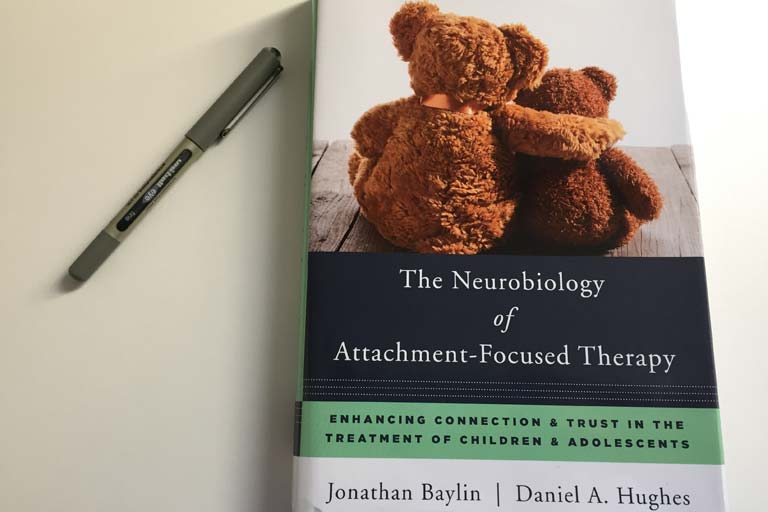Making Connections Conference – From Mistrust to Trust
I attended a one-day conference with Dan Hughes and Jon Baylin on 17th October 2016 and picked up a copy of their new book “The Neurobiology of Attachment-Focused Therapy”.

Dan Hughes started by making the really important point that social learning based strategies for behaviour management and change (that includes rewarding desirable behaviour and punishing undesirable behaviour including the use of time out) only work when the child can take safety and relationship security for granted. Children with histories of neglect and trauma within their early caregiving relationships are not able to feel this safety and security without help. Their brain is caught in what Jon Baylin terms “defensive living” – their brain (particularly their amygdala) is on high alert and preoccupied with safety, avoidance of relationships and threat and monitoring the external world. Defensive living means the brain is limited in the quality and quantity of their connections to higher brain areas – the child struggles to understand consequences and plan ahead, there is a very limited sense of self or awareness of internal feelings and thoughts, the ability to reflect and be curious is restricted.
Dan and Jon also talked a lot about “blocked care” and how the child’s defensive brain can trigger a defensive response in the caregiver. It is hard to be open and sensitive to caring for a child living defensively because you don’t get as much of those feel good chemicals that are normally released during intimate moments of parenting and make it all feel worthwhile.
Therapeutic work is all about helping the child to feel safe enough to drop their guard a bit and to get communication going between the carer and the child “amygdala to amygdala”/at a very primitive felt sense level not discussion and reasoning. Only then can we hope to start to increase the connections between other brain areas and begin to support the beginnings of identify, curiosity and reflection in the child. Only then might there might be a chance of those rewards and negative consequences actually working….



